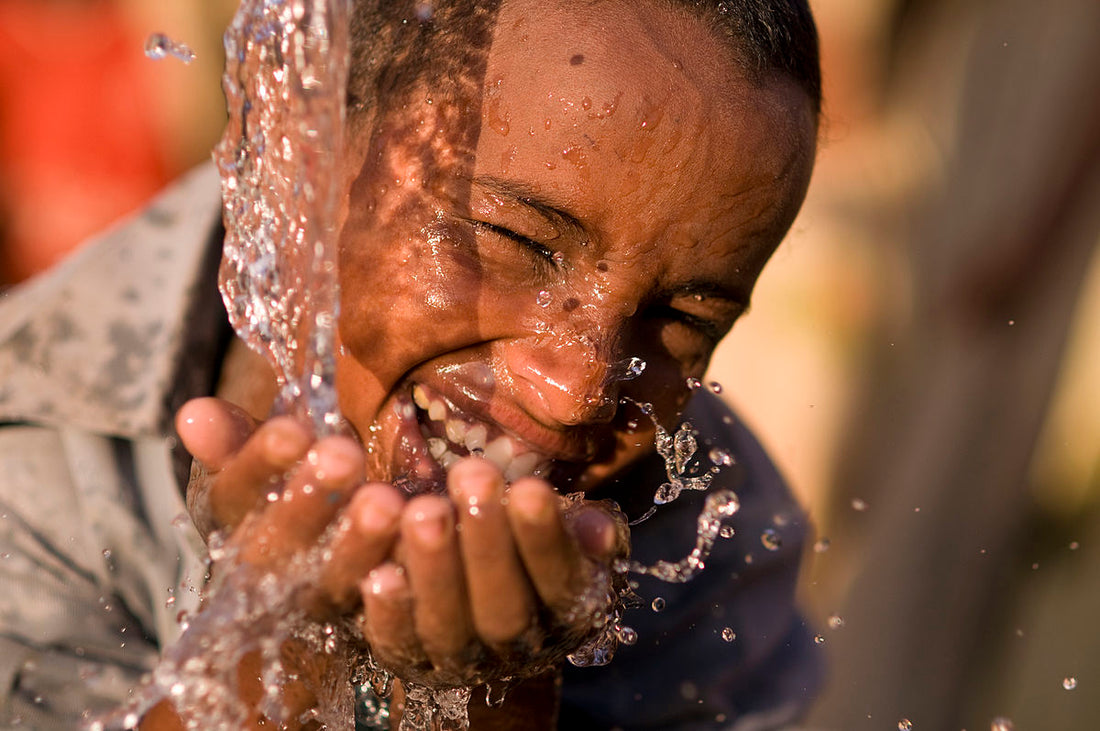
COVID-19 Increases Global Water Woes
By Dan DeBaunShare
The COVID-19 pandemic is expected to prevent countries around the world from achieving their Sustainable Development Goals (SDGs) — a global effort to improve the living conditions of poorer populations worldwide by 2030, including providing access to safe drinking water and hygienic sanitation, which is widely acknowledged as a basic human right.
Yet, while these endeavors have been stalled to a certain extent as a result of the pandemic, the emergence of COVID-19 and it's associated health risks has made access to clean water and sanitation more urgent than ever. Proper sanitation together with good hygiene practices such as washing hands with clean water, can help to prevent the spread of diseases, including the coronavirus, and save lives. Yet billions of people all around the world still do not have access to safe drinking water or adequate sanitation, and according to the United Nations, there just isn't enough funds available to roll this out as urgently as needed.
Now might be a good time to re-strategize how we plan to achieve the Sustainable Development Goals, especially when it comes to providing access to clean water and sanitation. But before we do so, we need to recognize that provision of access to safe drinking water is not limited to developing countries only, but rather it is a problem affecting developed nations too, and one which is made worse given the health risks associated with poor hygiene under the current global coronavirus crisis.
The COVID-19 pandemic has highlighted the critical need for access to safe water for drinking as well as for effective hygiene and sanitation in cities in developing countries, especially in poorer regions, urban slums and other areas where large groups of displaced people congregate, such as refugee camps, that lack basic services. While heavily populated regions across South Asia and Africa face the largest challenges in providing people with safe drinking water and adequate sanitation, it is a problem that is increasingly being faced by developed countries as well.
The water quality issues experienced by residents of Flint in the United States in recent years, is a case in point, forcing people to take measures to treat their own drinking water to ensure it is safe for consumption or opt for bottled water — an expensive, and unsustainable alternative for poorer households. But as authors Cecilia Tortajada and Asit Biswas point out in an article in The Conversation, many consumers in developed countries across the world choose to filter their drinking water to remove any potential contaminants and ensure that it is healthy and safe to drink, even if they are provided with treated drinking by their water utility. However, COVID-19 lockdowns have caused unemployment levels to rise, and many households are feeling the financial burden of a reduced income, yet still have water bills and other monthly accounts to pay. Finding additional funds to spend on ensuring their water is safe to drink is becoming problematic for those who are struggling financially during these times.
This presents a unique quandary. On the one hand, due to utility consumer protections implemented to protect consumers in times of hardship resulting from the COVID-19 outbreak, paying customers are increasingly being allowed to receive water even if they are unable to pay for it. On the other, funds are needed to provide clean water to those who currently don't have access to this vital resource at all.
One thing is clear, in these uncertain times, the powers that be are going to have to get creative and use the limited financial resources available wisely if they hope to meet their SDGs and increase access to clean water and sanitation.-
Regular price $234.00 USDRegular priceUnit price / per
-
Regular price $327.00 USDRegular priceUnit price / per
-
Regular price From $367.00 USDRegular priceUnit price / per
-
Regular price From $408.00 USDRegular priceUnit price / per
-

 Sold outRegular price From $451.00 USDRegular priceUnit price / per
Sold outRegular price From $451.00 USDRegular priceUnit price / per -
Regular price From $478.00 USDRegular priceUnit price / per
-
Regular price $332.50 USDRegular priceUnit price / per
$350.00 USDSale price $332.50 USDSale

Dan DeBaun is the owner and operator of Big Berkey Water Filters. Prior to Berkey, Dan was an asset manager for a major telecommunications company. He graduated from Rutgers with an undergraduate degree in industrial engineering, followed by an MBA in finance from Rutgers as well. Dan enjoys biohacking, exercising, meditation, beach life, and spending time with family and friends.
~ The Owner of Big Berkey Water Filters
















